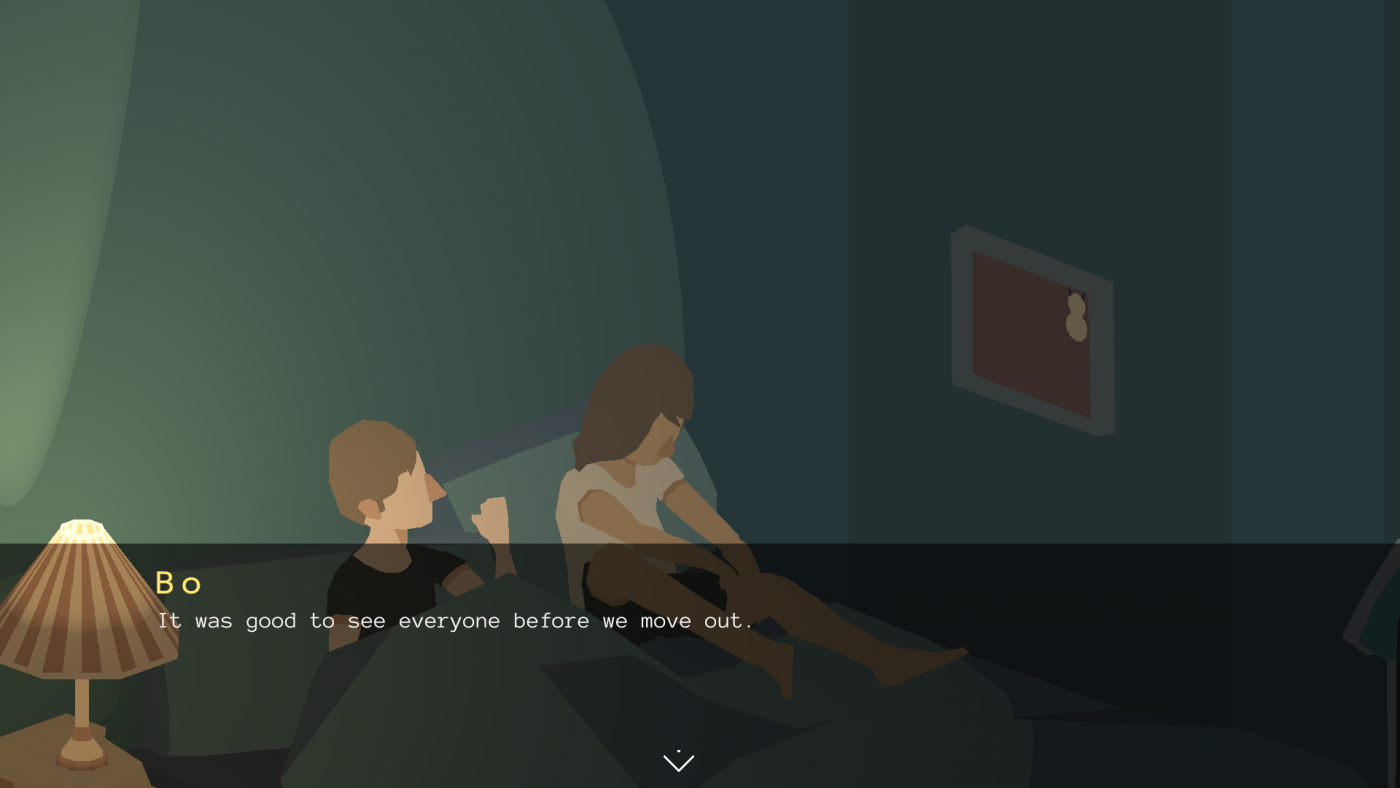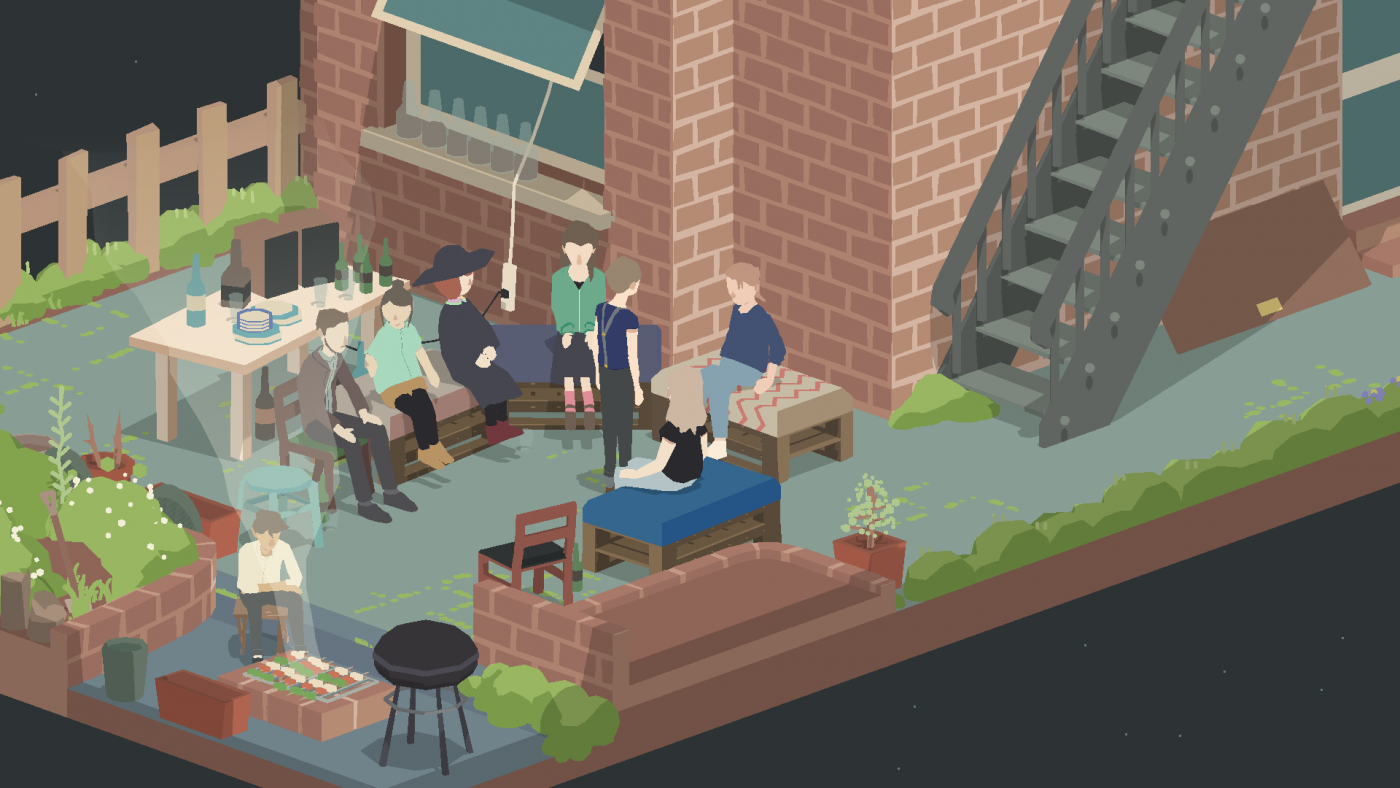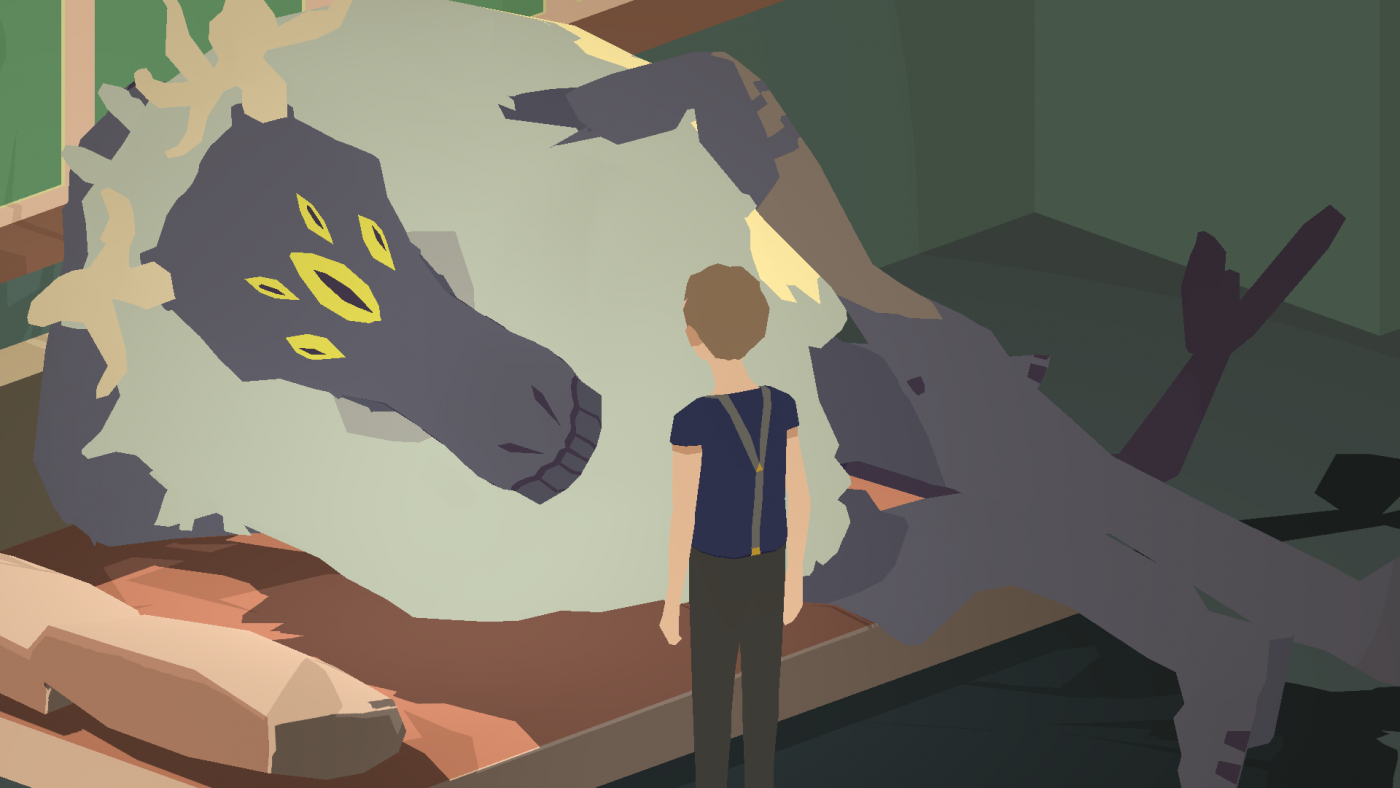From developer Humble Grove and publisher Fellow Traveller comes No Longer Home, an atmospheric and dreamy little point and click game exploring the nonbinary experience, in the stylistic vein of Kentucky Route Zero. It’s an interactive, visual novel type narrative with minimalist graphics and sprinklings of magic realism, and is semi-autobiographical, based on the lives of the two main developers, Cel Davison and Hana Lee.
It’s a story about Bo and Ao, who are facing uncertainty at the end of their university lives. Both characters are nonbinary, using they/them pronouns, but Ao must return to their native Japan, separating the couple. Davison and Lee were, like Bo and Ao, separated at the end of university. The story is all about identity, transitionary periods of life, being on the cusp of adulthood, memory, mental health, and relationships of all kinds. A whole host of characters with distinct and recognisable personalities will greet you as you explore the game.

It’s a narrative that very effectively explores the pain of goodbyes and the grey space of adulthood that comes with leaving university and going out into the adult world, and it communicates the beauty and tragedy of the everyday with startling accuracy. Those who have experienced the student life will perhaps be reminded of their own nostalgia for this specific and transitionary period of life, particularly as you explore the clumsy flat that Bo and Ao have lived in.
This is a very short game, easily able to be completed in one sitting of around 2-3 hours. You’ll navigate through the flat environment, explore, and interact with various items and people. The movement of the characters is slow and clumsy, and the animation leaves something to be desired, but the gameplay is not the central feature of No Longer Home, so one might forgive this. It’s far more about the story and future of Bo and Ao unfolding, and about slow-burning emotion.

It’s also something of a slow game, and it will certainly not be for everyone, as it is the psychological dimension that really gives it its meaning. Long, profound conversations punctuate the narrative, accompanied with beautiful and equally dreamy music. The environments, for all their minimalism, are incredibly atmospheric and pretty.
I’ll be honest in saying that whilst I enjoy a good and emotional narrative game, it wasn’t entirely for me; I found it a little too slow and contemplational to really be something I was genuinely excited about. Having said that, I know that as a cisgender woman, I am not entirely the target demographic for all of the themes of the game, and there are things within it that are just not meant for me – and that’s okay, because not everything is for me. A lot of the things in this game did resonate deeply with me though. The very dreamy and uncertain tone, the mentions of mental health and the post-university struggle were all things that hit close to home and I can see why it has been received with such excitement.

For those who appreciate the themes mentioned and this sort of narrative game, I recommend you try out No Longer Home. It didn’t jump out to me as an extraordinarily exciting game, but it is an important one: the representation of nonbinary characters and the nonbinary experience is vital, and refreshing, and it’s a game that will hit home for those who need it most.
No Longer Home is out now on PC through Steam, GOG, Humble and Epic, and is coming this October 7th to Xbox and Nintendo Switch.

